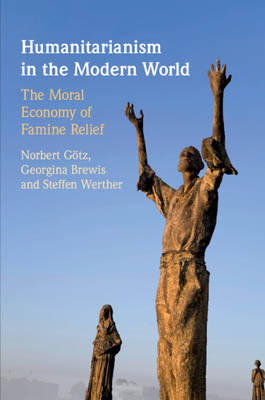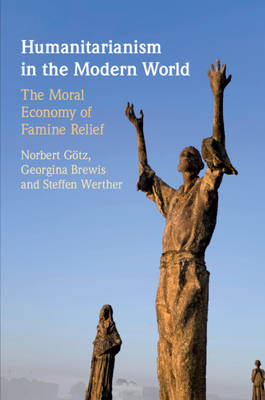
- Afhalen na 1 uur in een winkel met voorraad
- Gratis thuislevering in België vanaf € 30
- Ruim aanbod met 7 miljoen producten
- Afhalen na 1 uur in een winkel met voorraad
- Gratis thuislevering in België vanaf € 30
- Ruim aanbod met 7 miljoen producten
Zoeken
Humanitarianism in the Modern World
The Moral Economy of Famine Relief
Norbert Götz, Georgina Brewis, Steffen Werther
Paperback | Engels
€ 46,45
+ 92 punten
Omschrijving
This is an innovative new history of famine relief and humanitarianism. The authors apply a moral economy approach to shed new light on the forces and ideas that motivated and shaped humanitarian aid during the Great Irish Famine, the famine of 1921-1922 in Soviet Russia and the Ukraine, and the 1980s Ethiopian famine. They place these episodes within a distinctive periodisation of humanitarianism which emphasises the correlations with politico-economic regimes: the time of elitist laissez-faire liberalism in the nineteenth century as one of ad hoc humanitarianism; that of Taylorism and mass society from c.1900-1970 as one of organised humanitarianism; and the blend of individualised post-material lifestyles and neoliberal public management since 1970 as one of expressive humanitarianism. The book as a whole shifts the focus of the history of humanitarianism from the imperatives of crisis management to the pragmatic mechanisms of fundraising, relief efforts on the ground, and finance. This book is also available as Open Access on Cambridge Core.
Specificaties
Betrokkenen
- Auteur(s):
- Uitgeverij:
Inhoud
- Aantal bladzijden:
- 370
- Taal:
- Engels
Eigenschappen
- Productcode (EAN):
- 9781108737371
- Verschijningsdatum:
- 3/11/2022
- Uitvoering:
- Paperback
- Formaat:
- Trade paperback (VS)
- Afmetingen:
- 152 mm x 229 mm
- Gewicht:
- 494 g

Alleen bij Standaard Boekhandel
+ 92 punten op je klantenkaart van Standaard Boekhandel
Beoordelingen
We publiceren alleen reviews die voldoen aan de voorwaarden voor reviews. Bekijk onze voorwaarden voor reviews.







